|
|
|
Книги издательства «Glas New Russian Writing»
|
Bulgakov and Mandelstam never met and yet their lives had much in common. Both men were born in the same year, 1891, and both lives ended prematurely, crushed by the cruel totalitarian system. Mandelstam died in a Siberian gulag in December 1938, and Bulgakov 14 months later, in March 1940, from a terminal illness, probably brought on by unbearable stress and disillusionment. Despite their obvious genius both were largely unappreciated and unrecognized except by a handful of close friend who gave them encouragement and moral support. Both had unusually close relationships with their wives who inspired their work during their lifetime and enthusiastically promoted it after their deaths. If it were not for the wives' courageous efforts against all odds, world literature would have lost Mandelstam's luminous poetry and Bulgakov's superb magic realism forever. |
|
How was it possible that an entire country could live in mute fear? Why did Soviet intellectuals denounce each other and conspire with the authorities to brainwash ordinary people? Why did submarines sink and nuclear power stations explode in the Soviet Union? This collection contains stories by leading Russian writers Ludmila Petrushevskaya, Boris Yampolsky, Alexander Pokrovsky, Vladimir Kuzemko, Ilya Zverev. They attempt to explain the idiosyncrasies of Russian society by bringing to life experiences such as the vicious competition over private apartments, the ever-present threat of the GULAG, the precarious world of the Soviet atomic submarine, the Chernobyl disaster and its consequences, and the bizarre justice of the Soviet legal system. |
|
«The women's movement and women's literature are relatively new phenomena in Russian cultural life. Before perestroika there was only one organization for women, and that was the government-controlled Soviet Women's Committee. In the last few years sixty-two have been registered, six newspapers for women are now published, there is a TV programme called «Career Woman», and we have four feminist organizations. In devoting this issue to women's writing we are not proposing a rigid approach to Russian literature on the basis of gender, just as age or race strike us as only marginally relevant. It just so happened that in our search for new and interesting works of literature we have found an abundance of excellent stories by women writers. Some of these we are offering here for your attention as representative of woman's view of the world, and her present search for identity. To a large extent Russia's women are bearing the brunt of the present upheavals in our society.» |
|
A rediscovered classic Krzhizhanovsky was banned during his lifetime and only published in 1990s. |
|
«The appeal of this book is not only in its infectious eroticism, its wit and humor but mainly in its masterful portrayal of Soviet Russia in the 1970s and 80s through a multitude of cleverly observed details. Although «The Road to Rome» is actually a collection of reminiscences about real events it is structured as a plot-driven narrative and was in fact nominated for the Booker Prize in 1995 as a novel.» |
|
An anti-utopian novel about a society where success depends on the degree of a person's likeness to the Model Face. |
|
These two novels by Debut Prize finalists present typical provincial towns in central Russia and a gallery of modern-day types: radically minded youths, ruthless thugs, drunken intellectuals, the local elite, and failed fortune seekers. The heroes are yearning for faraway glamorous cities and trying to find their identities. They suffer through various weird misadventures, but for many readers their tales may be a survival guide. A vivid portrait of the younger generation in today's Russia: stunned by their first painful contacts with harsh reality. The authors will present the book at BEA 2011 in New York, NY. |
|
«Today an unusually gifted generation is entering Russian literature... Literature has not seen such an influx of energy in a long time.» Olga Slavnikova, director of the Debut PrizeBy and about Russian hitchhikers, these stories take the reader along the endless roads of central Russia, the Urals, the Altai, Siberia, and beyond. In energetic and vivid prose they depict all sorts of curious Russian types: exotic adventures in far-flung places, the complex psychological relationships that develop on the road, and these hitchhikers' inexplicable passion for tramping. «In via veritas» is their motto. The authors are all winners of the Debut Prize, and will present the book at BEA in 2012 in New York.Irina Bogatyreva lives in Moscow. She has won several prizes, including the Debut, for her novel «AUTO-STOP.» She has several published books to her credit.Tatiana Mazepina is the latest Debut Prize winner. She is a member of the Society of Free Travellers. She works as a journalist and writes on religious matters.Igor Savelyev lives in Ufa (Bashkiria) where he works as a crime reporter. He is the winner of the Debut Prize and several other prizes.» |
|
This is the tragicomic story of a successful young architect, Fyodor, the reluctant single father of an adolescent son with Down syndrome. The son is a terrible embarrassment to Fyodor, who relies on his own parents to take care of him. Fyodor has fraught relationship with them as well. But then a fatal car crash and the accidental discovery of a mystical painting, Petroleum Venus, force this self-involved father to ultimately embrace his troubled son, his parents' moral values, and the real things in life. Petroleum Venus won the Debut Prize, was shortlisted for the National Bestseller Prize, nominated for the Russian Booker, and sat on the www.ozon.ru bestseller list for a year. |
|
Styled as Oriental tales, these parables are unexpected, exciting, colorful, and tremendously readable. Vlas Doroshevich could not stand tyranny in any form and in his tales he availed himself of complete freedom to mock, to despise, and to accuse the authorities for their wickedness, hypocrisy, and stupidity. These tales could be written by and for rebellious anti-establishment youth of today. Doroshevich's works were often banned during the tsarist times and then finally banned completely under the Bolsheviks. This great Russian writer, who was a friend of Anton Chekhov, is only now being resurrected from oblivion. This is the first English translation of his tales. Vlas Doroshevich (1864-1922) was widely known as the king of journalism in his time. He was also a novelist, drama critic, and short story writer. |
|
«In this collection, centred on the theme of Childhood, we offer two early stories by Andrei Bitov which reflect the growing awareness in children of life's mystery and beauty; a story by Andrei Platonov, bearing the stamp of his inimitable style; Ludmilla Ulitskaya's perspicacious insight into the complex relationship between twin sisters; an impressionistic story by Zufar Gareev about the torments of adolescence; Leonid Latynin's epic, set in pre-Christian Russia and giving us a glimpse of the dawn of Russian civilisation; Alan Cherchesov's account of an unusually bright Chechen boy living alone in a highland village in the Caucasus; Anatoly Pristavkin tells about childhood in a special orphanage for children of «enemies of the people»; and the latest Booker winners Andrei Sergeev and Sergei Gandlevsky.» |
|
«Leonid Latynin was born in a small town on the Volga and raised by his old grandmother on old religious books and Russian folklore. Since childhood he has been fascinated with pre-Christian Russian culture, which found expression in his highly original novels. Latynin was trained as a philologist and has become an expert in pre-Christian Russian culture and Russian icons. Both of these interests are apparent in his fiction. The work of Leonid Latynin can hardly be classed with any existing literary trends or movements. Asked in an interview whether he had been associated with the literary underground back in Soviet times Latynin said that he existed on its margins, living alone like a hermit. He has several collections of poetry to his name, the novel «The Face-maker and the Muse», and the novel «The Russian Truth» in four books. «Sleeper at Harvest Time» (Book One of the tetralogy) was published in French by Flammarion, and in English by Zephyr Press.» |
|
The novel is about displaced persons and their cultural and psychological problems in an alien society. It consists of monologues by several male and female protagonists – repatriated Russian Germans -- whose lives become entangled at a certain point in the country of law and order, where they suddenly realize that they feel more Russian than German. They find themselves culturally different from the locals and often fail to integrate in the local communities. On the other hand they have never felt quite at home in Russia. Germans were encouraged to settle in the Russian countryside from the times of Peter the Great. Over the centuries they tried to preserve their national culture and traditions, but in the 20th century, marked with two great wars which made them highly unpopular, when they started repatriating they found themselves foreigners in their cherished homeland. The characters exist in the cross-cultural space between Russia and Germany, a space populated by about three million Russian-speaking Germans, who will be quickly disappearing and will probably no longer be around in 50 years time. Dmitry Vachedin was born in 1982 in St Petersburg and moved to Germany with his parents in 1999. He graduated from Johannes Gutenberg University in Mainz with a degree in Political Science and Slavic Studies. Currently he lives in Bonn and works as a journalist for Deutsche Welle. At the age of 25 he won the Debut Prize for his short stories. In 2010 his novel Snow Germans was nominated for the Russian Prize, and in 2012 he became the winner of the Russian Prize for his short stories. |
|
Noted for its fresh and positive approach, extraordinary vitality, and fearless acceptance of life in its good and bad manifestations, this book shows young Russians' minds and souls. The plays focus on the painful problem of neglected children abused or abandoned by alcoholic single mothers, and the children's thirst for the love and understanding they are not getting. The four young authors are winners of the top prizes for drama. Living in different parts of Russia (Siberia, the Urals, and the Volga) and writing in different styles, they share a deep interest in people's inner lives, following the tradition of Anton Chekhov. |
|
Merciless and beautiful prose, pithy and precise... leaves no one unmoved. Ex Libris Real-life dialogues, vivid imagery, striking metaphors. Literary Russia A remarkable novel of social discontent written by a sure hand. SNOB Gangsters take complete control of an industrial town with its corrupt authorities, business, and police. Defending his daughter, the protagonist accidentally shoots the chief gangster and has to go into hiding, first among the homeless at the town garbage dump, and then in the forest among Saami deer-breeders. He becomes transformed from a little man into a people's avenger, killing the corrupt mayor and the chief of police. Through a series of tricky manipulations, a different person is accused of the serial murders in the interests of the new gangsters, who seize control of the town in the end.The setting — a town on the Kola Peninsula above the Arctic Circle where the author spent her formative years — is clearly meant as a portrait in miniature of all of Russia and expresses young people's social discontent. Action-packed and highly revealing, this novel abounds in interesting ethnographic details related to the indigenous Northern tribes of Saami and life in the Northern provinces. A finalist in two major literary contests, Debut and NOS, and winner of the Northern Star Prize, Liza Alexandrova-Zorina (b. 1984) is an outstanding spokeswoman for her generation and a prolific author. The Little Man is also coming out in France and Egypt. |
|
A cycle of stories about the difficult process of coming of age: young people who see themselves as outcasts, oddballs, and freaks, and who grow up through some experience of love and loss. These Ugly Duckling — type stories are timeless and the author has managed to make them new again. They are united by the one thousand-year-old city of Yaroslavl, Russia, and provide a host of exciting details which go unseen by tourists: the real adventure begins where the tourist trail ends. Winner of the Debut and other prizes, Anna Lavrinenko (b. 1984) lives in Yaroslavl, Russia, the vivid backdrop for all her stories. |
|
Savelyev is a professional in a good sense: his language consists of energetic short sentences, abundance of well-chosen details, and recurrent juxtaposition of the fictional and the documentary. The novel is written masterfully, aptly phrased and rich in interesting details; it will look good in Volume One of his Collected Works a couple of decades from now. Afisha Mars symbolizes freedom and a daring goal, different for each character. One goes to America to break away from the humdrum provincial life. Other protagonists launch a campaign against a dishonest airline exploiting people's fear of flying by promising false guarantees of safety, for an extra price. The protest peters out after the arrests, sobering the young people's enthusiasm. Reports of actual plane crashes accompany the narrative, providing a frightening backdrop. New heroes of our times: confused and disillusioned young Russians growing up in conditions of wild capitalism and political stagnation. Throughout the novel reports of actual airplane crushes interfere matter-of-factly into the narrative, providing a frightening a refrain to the story and symbolically in tune with the characters' personal moral downfalls. The Martian theme is crowned by the seventy-five-year-old ex-cosmonaut Valentina Tereshkova's letter to President Putin suggesting that she should be sent to Mars on a one-way mission for the glory of her homeland. Twenty-eight-year-old Igor Savelyev won many literary prizes for his masterful prose based on brilliant counterpoints. His stories have been translated into many languages. |
|